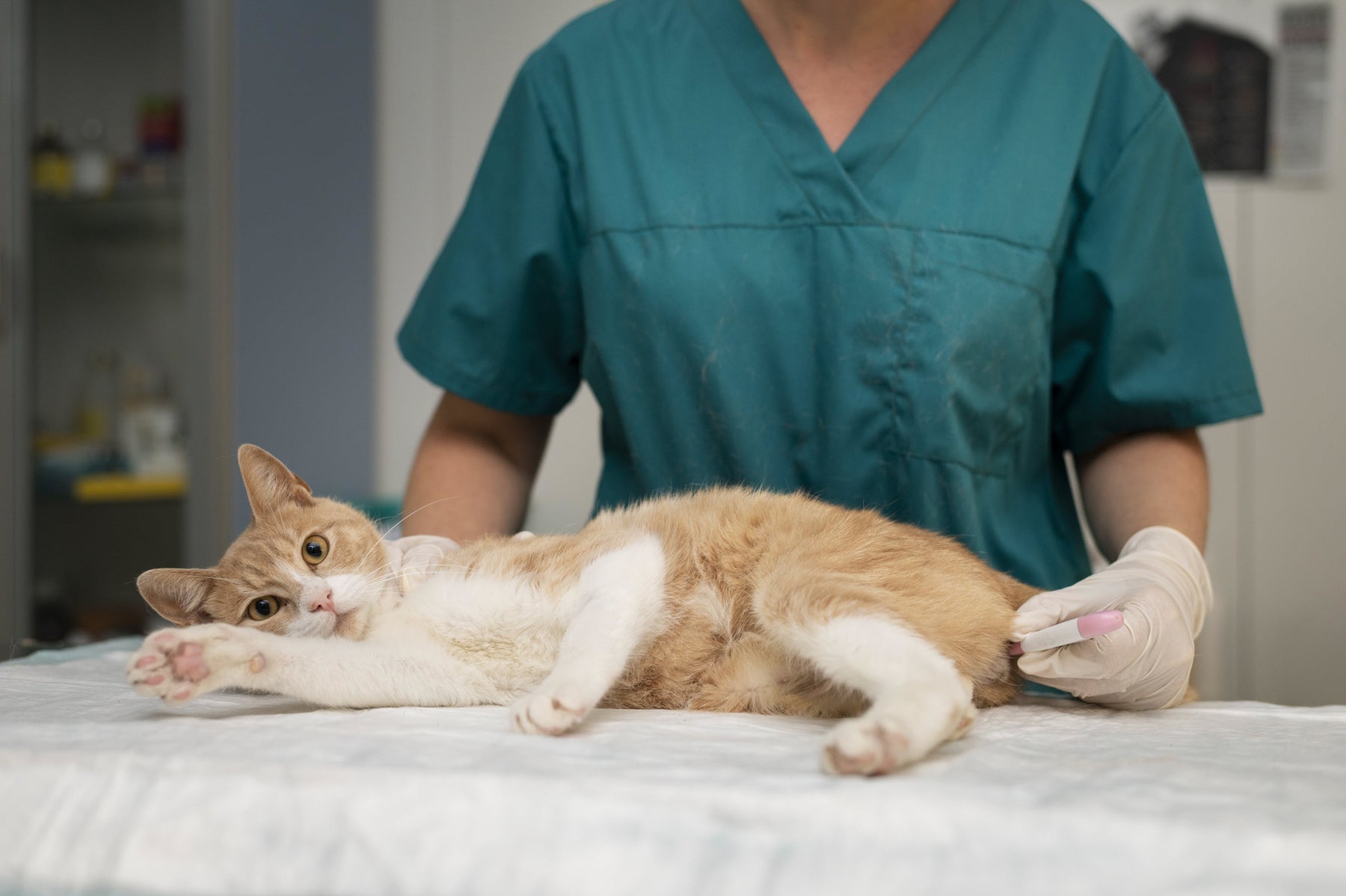
Chronic Kidney Issues in Dogs and Cats
Chronic Kidney Issues in Dogs and Cats
Chronic kidney failure is a very common disease in older cats and dogs. Read on to learn about chronic kidney failure and how you can care for pets with this condition.
Overview of kidney function
The kidneys remove toxins and excess water from the body. They do this by producing urine. Urine production involves filtering blood through the kidneys and then reabsorbing needed water and nutrients into the bloodstream. Urine is formed from the excess water and waste products that have not been reabsorbed.
What is kidney failure?
Kidney failure refers to the kidneys’ inability to filter waste products from the blood, and inability to regulate the balance of water and chemicals in the body. Kidney failure can be acute (sudden) or chronic (gradual and long-term). Acute kidney failure commonly occurs due to poisoning, injury, urinary tract blockage and so on. This article will talk about chronic kidney failure in cats and dogs, why it’s bad, signs to look out for, and how chronic kidney failure is managed.
What is chronic kidney failure (CKD)?
As mentioned before, CKD refers to gradual, progressive and persistent loss of kidney function over time. CKD is a very common disease among older animals, although there are a few breeds (e.g. Persian cats) that can develop CKD at a young age. CKD is an irreversible condition. However, veterinary intervention is necessary to preserve any remaining kidney function for as long as possible, delay progression to complete kidney failure, and prolong your pet’s quality of life.
Our in-house vets have encountered pets on both sides of the spectrum when practicing in clinics. We’ve met pets with CKD that enjoyed a good quality of life as they were well-managed with veterinary interventions. Sadly, we’ve also encountered pets that suffered as they were already in the advanced stages of CKD when their owners sought veterinary attention.
Why is CKD bad? What can it lead to?
As diseased kidneys are inefficient in regulating waste, toxins (e.g. ammonia) accumulate in the body. This can cause nausea, vomiting and reduced appetite. Excessive amounts of toxin can cause seizures and damage the brain.
Diseased kidneys also cannot regulate the balance of electrolytes (aka essential minerals) in the body, causing a chemical balance. This has a wide range of devastating consequences. For instance, CKD causes excess phosphorus levels, which leads to brittle bones in pets. Improper potassium levels can also cause heart issues (e.g. abnormal heart rhythm).
The kidneys also produce erythropoietin, which stimulates the production of red blood cells. This leads to anemia (low red blood cell count). As red blood cells transport oxygen to tissues, anemia can be dangerous. Anemic animals’ organs do not receive enough oxygen, they do not function optimally. Anemia can cause complications such as heart failure. Severe anemia can be life-threatening and cause multiple organ failure or death. Diseased kidneys cannot regulate fluid balance in the body, leading to dehydration. Chronic kidney failure also causes hypertension. Unmanaged hypertension can lead to serious issues like blindness, seizures and heart damage in pets.
Signs of chronic kidney failure in cats and dogs
Signs of chronic kidney failure in cats and dogs include (but are not limited to):
-Excessive drinking/urination
-Weight loss
-Unkempt coat
-Bad Breath
-Vomiting
-Diarrhea
-Seizures in advanced cases
How is kidney failure diagnosed?
Kidney failure is diagnosed with blood tests and urinary tests. Blood urea and creatinine levels will be elevated when 75% of kidney function is lost. There is another blood test called the sDMA marker, which will be elevated when 40% of kidney function is lost. IRIS Staging
It is best for all pets to go for a general health check at least once a year. In this way, vets can diagnose and detect underlying issues that may not be visible at earlier stages (in other words, pets can appear completely normal during the earlier stages of diseases such as CKD). If medical issues are detected earlier, they are often easier to manage. Consult your vet if you are worried that your pet may have underlying CKD.
Management of chronic kidney failure
Chronic kidney failure is managed with diets, fluid therapy and medications.
Kidney diets are essential for CKD patients as they contain regulated amounts of high-quality protein. Excessive dietary protein will strain a pet’s kidneys. Kidney diets also contain regulated amounts of sodium and phosphorus, which will help with the body’s electrolyte balance.
Fluid therapy is essential for kidney failure as they replenish fluid that is lost because of malfunctioning kidneys. In this way, fluids will help dehydrated pets. Fluids also contain electrolytes that help with the body’s electrolyte balance.
Your vet may prescribe medications to help with hypertension (e.g. amlodipine, benazepril) if required. Your vet may also prescribe medications for excess phosphorus levels.
Your vet may recommend supplements to support kidney function. Popular supplements include kidney probiotics such as Azodyl, Rocks Nutraceuticals Kidney + Probiotic Supplement and Rotibac Probiotic capsules . Ferment Renacor is also a popular renal postbiotic. Kidney probiotics and postbiotics may help to break down the excess accumulated waste in animals with CKD.
To conclude, CKD is a very common condition in older pets. CKD is irreversible, and it can rapidly progress and lead to a range of serious issues if not managed. However, if CKD is well-managed, an affected pet’s lifespan can be prolonged and the pet will enjoy a better quality of life.


Leave a comment